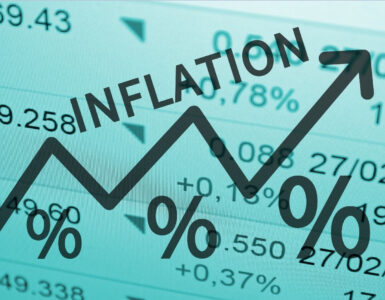The Nasdaq Composite on Wednesday exited a brutal bear market, while the Dow Jones Industrial Average ended a market correction, as stocks rallied in the wake of a cooler July inflation reading.
The Nasdaq Compositerose 360.88 points, or 2.9%, to end at 12,854.80 on Wednesday. According to Dow Jones Market Data, a finish at or above 12,775.32 marked a 20% or more rise from Nasdaq’s June 16 closing low at 10,646.10. While there’s no official arbiter of bull and bear markets, the 20% rise off a recent low meets widely used criteria for marking the end of a bear (see chart below).
The Dow meanwhile, rallied 535.10 points, or 1.6%, closing at 33,309.51 The finish above 32,877.66 saw the blue-chip gauge, which dodged a bear market, log a rise of 10% or more from its correction low.
A correction is popularly defined as a pullback of 10% but less than 20% from a recent high, while a bear market is a pullback of 20% or more.
Stocks found support after a headline consumer-price index for July showed a better-than-expected slowdown for rising prices. But some market watchers were wary of sounding the all-clear based on indexes clearing an arbitrary threshold.
The Nasdaq fell 33.7% from its recent high to bear market low, and was in bear market territory for 108 trading days. The decline marks the deepest and longest bear market since 2008, when the index fell 54% and the period lasted 218 trading days, according to Dow Jones Market Data.
The index remains down 19.9% from its record finish in November 2021.
Of course, it’s the S&P 500— the U.S. large-cap benchmark — that really counts when it comes to U.S. equities. The index has also bounced, but remains in a bear market after completing a slide of more than 20% from its record finish on January 3.
Morgan Stanley’s Michael Wilson, one of Wall Street’s most vocal bears, also argued that the best part of the rally was over.
“The rally in stocks has been powerful and has investors believing the bear market is over and looking forward to better times,” the chief investment officer said in a Monday client note. “However, we think it’s premature to sound all-clear simply because inflation has peaked. The next leg lower may have to wait until September when our negative operating leverage thesis is better reflected in earnings estimates. However, with valuations this stretched, we think the best part of the rally is over.”
Source: MSN Money










